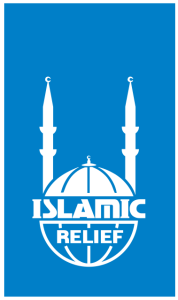Streamlined energy and carbon reporting requirements (Secr)
This statutory reporting requirement is intended to encourage the implementation of energy efficiency measures, with both economic and environmental benefits, supporting organisations in cutting costs at the same time as reducing carbon emissions.
In 2022, Islamic Relief continued to push for climate justice through our policy, campaigning and advocacy work. Our new Climate Policy endorsed every ethical action to eliminate greenhouse gas emissions and restrict the global temperature rise to 1.5 degrees. We bolstered the case for climate action with research papers detailing how the climate crisis is affecting vulnerable communities, drawing on our extensive experience helping them adapt – with 17 dedicated projects reaching 456,000 people this year. We take our responsibilities seriously, and so have engaged specialist consultants Enica to determine our carbon footprint. The consultant’s findings are set out in the table below.
Narrative table
[+ve denotes 2022 higher than 2021; -ve denotes 2022 lower than 2021]
| SECR 2021 BASE YEAR (01/01/21 - 31/12/21) | SECR 2022 REPORTING YEAR (01/01/22 - 31/12/22) | VARIANCE Base year 2021 less 2022 [+ve denotes reduction -ve denotes increase] | ||||||
| SECR Scope No | Energy source | Energy (kWh/yr) | Emissions (tCO²e/yr) | Energy (kWh/yr) | Emissions (tCO²e/yr) | Energy (kWh/yr) | Emissions (tCO²e/yr) | Emission (%) against base year total |
| Scope 1 | Natural gas | 354,502 | 64,9 | 366,426 | 66.9 | -11,924 | -2.0 | -0.5% |
| Scope 2 | Grid electric | 568,337 | 120.7 | 628,164 | 121.8 | -59,827 | -1.1 | -0.3% |
| Scope 1 | Transport (Islamic Relief owned) | 641,961 | 151.5 | 576,276 | 143.2 | 65,585 | 8.3 | 2.1% |
| Scope 3 | Transport (business travel in rented or fuel paid by Islamic Relief Worldwide to employee-owned vehicles i.e. grey mileage) | 33,190 | 6.6 | 79,168 | 18.8 | -45,978 | -12.2 | -3.1% |
| Scope 3 | Public rail and air travel (without RF³) | 44.0 | 12.7 | 31.3 | 8.1% | |||
| Grand total | 1,597,989 | 387.6 | 1,650,134 | 363.4 | -52,145 | 24.2 | 6.2% | |
| Annual income/Turnover¹ | £183,751,173 | £234,180,000 | ||||||
| Intensity Ratio i.e. KPI ² | 2.110 | 1.553 | ||||||
Note
¹ This income in £m is used to calculate the KPI
² Intensity ratio or KPI is the grand total of tCO 2e/yr ÷ Annual UK income (£m) ¹
³ RF = Atmospheric Radiative Force. OnlyCO2 data available
Methodology
The methodology used was in accordance with the UK Government’s Environmental Reporting Guidelines (March 2019). The Department for Agriculture and Rural Affairs’ (DEFRA) kgCO2e conversion factors for 2022 were used for converting energy (kWh) to tCO2e.
In the UK Islamic Relief has 24 sites – including shops and a factory – as well as transport. The energy consumption data for gas and electricity was taken from the main billing meters across all the sites. CO2 emissions from all modes of transport used by the charity have also been included in this exercise and cover:
Energy management
Islamic Relief has made significant changes in the way our offices operate, with hybrid working at all our major office sites requiring colleagues to attend only six days per month. When staff want or need to work from the office at other times, we provide desks in reserved areas in which we carefully control the heating and lighting. We have made only limited investment in our head office, since we are planning to move to a new site, the renovation of which was delayed by the effects of the Covid-19 pandemic. However, across all our sites we take care to ensure we provide a safe working environment while limiting consumption as much as possible by closely monitoring our energy and water usage. To ensure we record energy usage correctly, we are installing smart meters across our sites.
There were no further capital investments made since the last SECR 2020 report. Other energy saving technologies are being incorporated in the new building, Trafalgar House. No other estate site changes were declared.
The TIC International Plant was responsible for recycling 1,931 tonnes of clothing and shoes in 2022. As well as generating an income for Islamic Relief, this activity supported our sustainability objectives and prevented items going to landfill. Islamic Relief is committed to climate sustainable interventions in numerous countries. This includes interventions such as introducing solar energy to generate electricity for businesses, allowing more land to be irrigated or women-led businesses to stay open longer; providing environmentally friendly fuel and stoves; and promoting efficient agricultural practises such as half moon agriculture. There are examples of such projects throughout this Annual Report, particularly pages 33-35, and within our Climate Policy, which is available on our website.
TIC’s key role is generating income for Islamic Relief, to support our programmes and our journey towards Net-Zero, by performing a valuable environmental service in recycling clothing that may otherwise end up in landfills and harming the environment.
